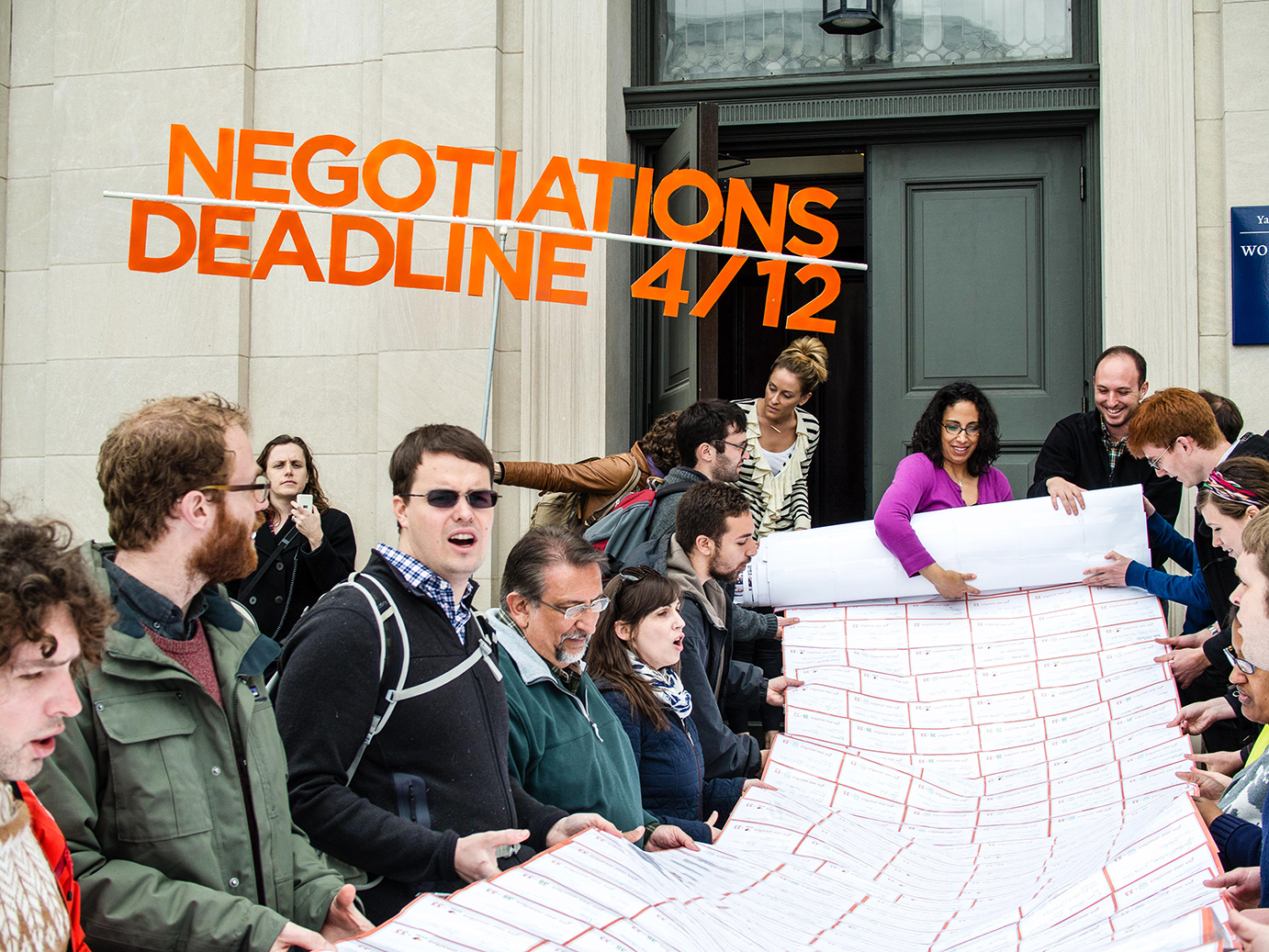
Courtesy of Local 33
Two days after the graduate student union Local 33 presented a petition to Woodbridge Hall demanding that the University begin labor negotiations on April 12, the road ahead remains unclear.
Since January, when Regional Director for the National Labor Relations Board John Walsh ruled that Local 33 may hold union elections on a department by department basis, the union and the University have engaged in a contentious back-and-forth. A month after the NLRB’s decision, six of the nine voting departments within the Graduate School of Arts and Sciences voted to unionize. On April 3, Yale’s legal team wrote a letter to the NLRB to provide further support for the argument that it should be permitted to file a second request for review of the regional director’s January decision. The following day, Local 33 filed a court opposition, requesting a court order to prohibit Yale from filing any additional requests for review.
And on Wednesday, Local 33 presented a petition outside Woodbridge Hall, which garnered around 12,000 signatures calling on Yale to meet with the union at the bargaining table on April 12 at 5:30 p.m.
“We have every expectation that Yale will come to the negotiating table one week from today ready to get to work,” Local 33 Chair Aaron Greenberg GRD ’18 said.
The NLRB dismissed Yale’s first request for review in February, which sought to prevent the elections from taking place. It has yet to decide whether the University should be allowed to file a second challenge.
In a statement to the News, University spokesman Tom Conroy said Yale has not yet seen a formal request from Local 33 to begin collective bargaining. He also emphasized that the University remains skeptical of Local 33’s departmental strategy.
“The University remains concerned that Local 33’s unprecedented micro unit strategy does not respect the voices of all graduate students,” Conroy said. “The recent elections, in which Local 33 won only six of the 10 handpicked departments it initially petitioned for, excluded 90 percent of the Graduate School from such an important decision.”
Local 33 initially filed for elections in 10 departments, but dropped the petition for the Comparative Literature Department in October.
At the same time, Yale and Local 33 are engaging with the NLRB to decide when to hold a hearing to resolve the elections in two departments — Political Science and East Asian Languages and Literatures — as the votes cast by masters and professional students in those departments are under challenge.
Disputes between graduate student unions and universities are the norm across the Ivy League. In March, Columbia University filed a second round of objections to students’ vote based on claims of improper conduct during the election. Columbia graduate students, who did not vote on a departmental basis, voted 1,602 to 623 in favor of unionizing in December.
At Harvard, graduate students voted 1,456 to 1,272 against unionization, though 314 ballots remain under challenge with the NLRB. In a statement to the News, the Harvard Graduate Student Union — United Auto Workers Organizing Committee — expressed support for Local 33.
“We stand 100 percent in support of Yale students organizing a union and collectively bargaining for better pay, improved health care and greater workplace security,” the statement said. “We are excited to see the next stage in Yale’s process and the secure contracts that its student workers negotiate.”
Results from a March graduate student union election at Cornell are still in question. Students voted 856 yes to 919 no, but 81 votes remain uncounted for various reasons. And according to The Daily Pennsylvanian, over 1,000 Penn graduate students are working to form an official union.







